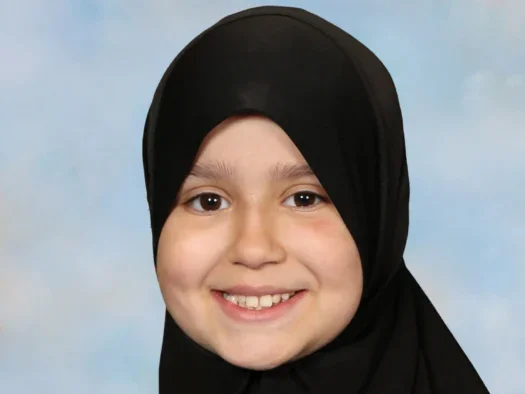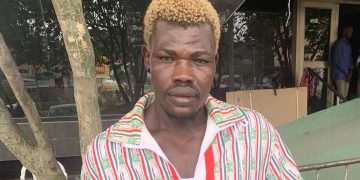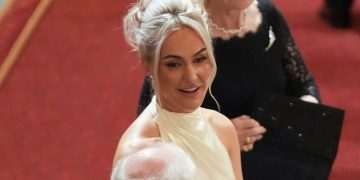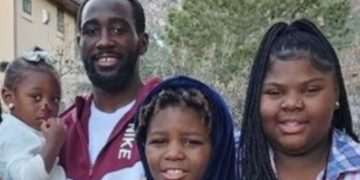
Journalists have won the right to challenge a decision to ban the naming of the judges involved in the family court proceedings of murdered girl Sara Sharif.
A Court of Appeal judge granted permission to appeal on the grounds that the arguments in favour of stripping the judges of their anonymity have a “real prospect of success” and the case “raises questions that are of considerable public importance”.
The two journalists who led the appeal, Tortoise’s Louise Tickle and freelance Hannah Summers, said the ban on naming the judges could have “set a dangerous precedent when it comes to holding the judiciary to account in the future”.
Tickle and Summers were supported in their appeal by the BBC, PA Media, Mail publisher Associated Newspapers, Times Media, The Guardian, The Telegraph, Sun publisher News Group Newspapers, ITV News, Channel 4 News and 5 News producer ITN, and Reach.
Sara was murdered at her home in Woking, Surrey, in August last year and her father, Urfan Sharif, and stepmother, Beinash Batool, have been convicted of her murder and jailed for life with minimum terms of 40 years and 33 years. Sara’s uncle, Faisal Malik, was convicted of causing or allowing her death and jailed for 16 years.
On 9 December, Mr Justice Williams ruled that details from previous family court proceedings could be published, with documents disclosed to the press showing Surrey County Council repeatedly raised “significant concerns” that Sara was likely to suffer physical and emotional abuse at the hands of her parents.
But he said that “third parties”, including social workers and judges involved in the historic proceedings, could not be named.
Part of his reasoning was a concern for there being a “real risk” of harm to the judges if they were named, as it would “make them a lightning rod for all the negative attention of the virtual lynch mob” or “anyone who chose to give effect to their feelings in the real world”. He citing the infamous Daily Mail “Enemies of the People” headline about three High Court judges in a Brexit case.
Tickle and Summers said on Friday in a joint statement: “Once Mr Justice Williams failed to give us permission to appeal his ban, our only route to address this urgent issue without further delay was to apply to the Court of Appeal for permission to challenge it, which the master of the rolls has now granted having given the issue very rapid consideration.
“The High Court judge who made this extraordinary order did not give reasons for his decision at the time of imposing it, nor did he raise the issue of judicial anonymity during the hearing. Banning the press from identifying judges is, we believe, unprecedented when those judges are carrying out their judicial function.
“Furthermore, as far as we are aware, the judges this order relates to did not apply for anonymity, and nor was any specific threat to them mentioned or evidenced in the hearing. Preventing their names from being published could give a false impression that the judges in question are trying to avoid public scrutiny.
“Our challenge to the ban isn’t just about this case. We are concerned that it could set a dangerous precedent when it comes to holding the judiciary to account in the future.”
The appeal over naming the judges will now be heard on 14 and 15 January in front of three Court of Appeal judges.
Surrey County Council first had contact with Urfan Sharif and Sara’s mother, Olga Sharif, in 2010 – more than two years before Sara was born – having received “referrals indicative of neglect” relating to her two older siblings, known only as Z and U.
The council began care proceedings concerning Z and U in January 2013, involving Sara within a week of her birth.
Between 2013 and 2015, several more abuse allegations were made that were never tested in court, with one hearing in 2014 told that the council had “significant concerns” about the children returning to Urfan Sharif, “given the history of allegations of physical abuse of the children and domestic abuse with Mr Sharif as the perpetrator”.
A judge was also told Sara was “observed to stand facing a wall” by carers and “is very small and doesn’t eat a lot”.
Despite concerns, Sara was moved to her mother’s sole care under supervision in November 2015, while still having contact with her father, which remained the case until 2019.
She then moved to live with Urfan Sharif and his new partner, Batool, with reports that this followed Sara making accusations of physical abuse by her mother, which were also never proved.
A judge at a family court approved the change, with Sara moving to the family home in Woking, Surrey, where she was later murdered after a campaign of abuse.
Mr Justice Williams had said in his judgment that “withholding the identity of a judge is an exceptional course to take, in the sense that it is an exception to the usual rule” and that “the public interest in scrutinising the decision-making is very high indeed”.
But he said that the decisions of social workers involved were “not obviously flawed” and the decision of a judge to send Sara to her father’s home was “indicated by faithful application of law and practice mandated”.
He said: “In this case, the evidence suggests that social workers, guardians, lawyers and judiciary acted within the parameters that law and social work practice set for them.
“Certainly to my reasonably well-trained eye, there is nothing, save the benefit of hindsight, which indicates that the decisions reached in 2013, 2015 or 2019 were unusual or unexpected.
“Based on what was known at the time and applying the law at the time, I don’t see the judge or anyone else having any real alternative option.”
Mr Justice Williams also said there was “compelling public interest” in the media being able to see the documents and “test how we approached the issues and to ask the legitimate question of whether there were things that the system could have done differently or better”.
But he continued that he believed the decisions made by family courts were “well within the boundaries of what one would typically encounter in a case of this nature”.
The post Media wins right to challenge Sara Sharif judges anonymity order appeared first on Press Gazette.































